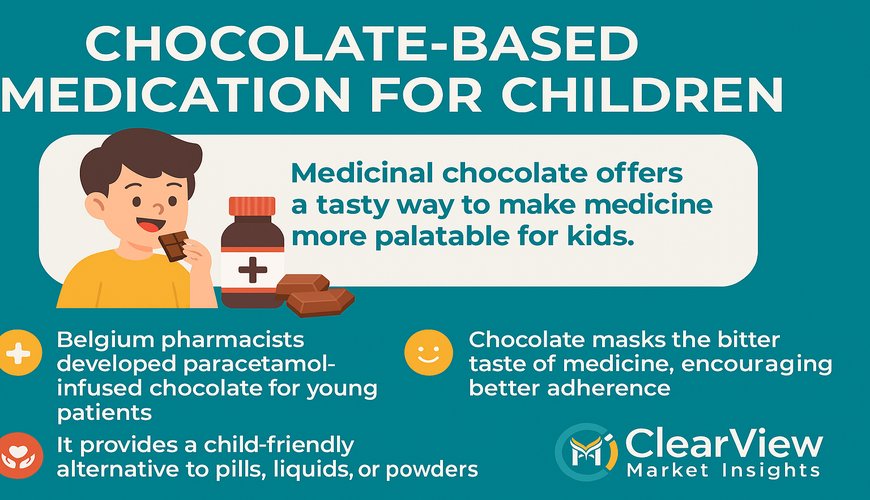Administering medicine to children has always been a challenge for parents and healthcare providers. Bitter syrups, large tablets, and unpleasant textures often lead to resistance, crying, or incomplete dosing—ultimately affecting treatment outcomes.
In a delightful turn of innovation, Belgium—a country globally known for its premium chocolate—has pioneered a new trend: medicine-infused chocolate for children.
Pharmacies and compounding labs across the country are now blending therapeutic doses of medication into high-quality Belgian chocolate, creating a child-friendly alternative that makes treatment both effective and enjoyable.
This trend is rapidly gaining global visibility and is expected to become a major pediatric healthcare innovation in the coming years.
Chocolate-based medication is a pharmaceutical-grade dose of medicine infused into a small piece of chocolate, typically formulated through compounding techniques.
The result is a safe, stable, and tasty therapeutic option designed for children who dislike syrups or cannot swallow pills.
Common medications infused into chocolate include:
Pain relievers (paracetamol, ibuprofen)
Antibiotics
Vitamins & supplements
Anti-allergy medications
Mild anti-inflammatories
The dosage is precisely measured to ensure safety and consistency in every piece.
Why Chocolate Works as a Medicine Delivery System
1. Masks Bitter Flavours
Chocolate’s rich and sweet taste effectively hides the bitterness of medicines, making intake easier.
2. Boosts Treatment Compliance
Children associate chocolate with reward, not discomfort. This significantly improves adherence.
3. Melts Easily
Chocolate melts at body temperature, making it easy to consume even for children who cannot swallow traditional tablets.
4. Reduces Parental Stress
Parents no longer need to force bitter syrups or negotiate during medication time.
5. Provides a Safe Delivery Format
Pharmacies use controlled, low-sugar dark or milk chocolate to maintain nutritional safety.
📊 Market Insights & Growth Potential
The pediatric compounding market is expected to grow rapidly due to consumer preference for personalized and child-friendly medication.
Global Market Value (2024)
Pediatric drug compounding: USD 1.2 billion
Expected CAGR (2025–2030): >10%
Key Growth Drivers
Rising demand for child-friendly drug formats
Increased adoption of pharmacy compounding
Growth in personalized medicine
Innovation in food-based therapeutics
While Belgium is currently leading this trend, similar experiments are emerging in:
Netherlands
Germany
Canada
United States
Japan
Healthcare providers are exploring new ways to make medicine less intimidating for kids.
🔬 Safety and Regulatory Considerations
Although innovative, chocolate medication must follow strict pharmaceutical guidelines:
Exact dosing standards
Allergen warnings (milk, nuts)
Sugar control for diabetic children
Proper labelling
Stability and storage testing
Belgian pharmacies already follow advanced compounding regulations to ensure child safety.
🧠 Future Outlook: A New Era in Child-Friendly Medicine
Researchers are exploring:
Sugar-free chocolate formulations
Probiotic and vitamin-enriched chocolate
Chocolate delivery for vaccines (experimental)
AI-personalized dosage based on child weight
Chocolate-based medicine is expected to become a global best practice for pediatric compliance.

